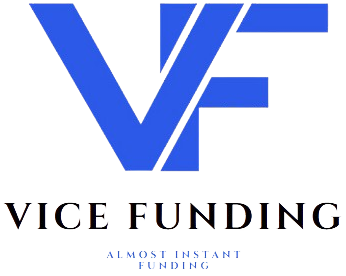
merchant cash advance (MCA) Loans | Business Loans
Merchant Cash Advance
Quick Overview
- Repayment: daily or weekly debit from the merchant account.
- Advance secured by direct access to the merchant account.
- Payback maybe 20% to 40% of the amount borrowed.
- Merchant cash advance providers can be found online.
By Joe Marone | Last Updated: November 2, 2024
merchant cash advance (MCA) Loans | Business Loans
Merchant Cash Advance
Quick Overview
- Repayment: daily or weekly debit from the merchant account.
- Advance secured by direct access to the merchant account.
- Payback maybe 20% to 40% of the amount borrowed.
- Merchant cash advance providers can be found online.
By Joe Marone | Last Updated: November 2, 2024
What is a Merchant Cash Advance (MCA)?
A Merchant Cash Advance (MCA) is an alternative form of financing for business owners who need quick access to capital. Unlike traditional business loans, an MCA is not technically a loan but rather an advance based on a business’s future credit card sales. MCA providers offer a fast, flexible way for businesses to access funds without the lengthy approval process or strict credit requirements that come with conventional bank loans.
Instead of evaluating traditional business credit scores, an MCA provider looks at daily credit card receipts to determine the business’s ability to repay the advance. In essence, the business “sells” a portion of its future credit card sales in exchange for an upfront cash advance.
While this option provides quick access to funds, it’s important for business owners to understand that the rates on an MCA can be significantly higher than other forms of financing. Being aware of the terms and the potential costs involved is crucial for making an informed decision.
How Does a Merchant Cash Advance Work?
Here’s how a Merchant Cash Advance typically works:
Agreement Terms: The business owner and the MCA provider agree on the amount of the advance, the payback amount, the holdback percentage (the percentage of daily credit card receipts that will be withheld), and the term of the advance.
Advance Deposit: Once an agreement is made, the MCA provider transfers the agreed-upon advance amount into the business’s bank account.
Repayment Through Holdback: The repayment is made by withholding a percentage of the business’s daily credit card sales, known as a “holdback.” The withheld funds are used to repay the MCA until the total payback amount is met.
Repayment Flexibility: The repayment amount varies daily, depending on the amount of credit card sales processed by the business. If sales are lower, the repayment amount will be lower, making this a flexible repayment option. Conversely, if sales are higher, repayment will be faster.
Since repayment is directly tied to sales, businesses with higher daily credit card transactions can repay their MCA more quickly. However, in slower periods, the repayment slows down accordingly, aligning with the business’s cash flow.
Repayment and Loan Costs
Typically, businesses that use an MCA will repay a percentage of the amount borrowed, which is referred to as the factor rate. The factor rate is generally between 20% and 40% or more, depending on the terms of the agreement.
It’s important to note that the holdback percentage (the percentage of daily receipts that are withheld) is separate from the factor rate.
Example:
If a business is advanced $10,000 and agrees to repay $13,000, the factor rate would be 30%. If the business has an average of $14,500 in monthly credit card sales, approximately $2,160 would be withheld each month until the $13,000 is repaid.
Holdback rates typically range from 10% to 20%, though this can vary depending on the business’s financial health and sales volume.
How to Know if a Merchant Cash Advance is Right for Your Business?
An MCA may be right for businesses that need quick access to capital for short-term needs, such as:
Purchasing inventory at a discount
Seizing marketing opportunities
Covering other short-term expenses
One of the main advantages of an MCA is that it doesn’t require perfect credit, making it an option for businesses with lower credit scores or those that don’t meet the stringent requirements of traditional loans.
However, an MCA should not be used regularly due to the high costs involved. It is best used for one-off emergencies or temporary gaps in cash flow that are expected to be covered by future credit card sales.
Pros and Cons of a Merchant Cash Advance
Pros:
Fast access to capital: The application process is quick, and businesses can often receive funding within a few days.
Flexible repayment terms: Repayment is tied to daily sales, so businesses repay in proportion to their cash flow.
No collateral required: There’s no need to pledge assets like property or equipment, making this an attractive option for businesses that can’t provide collateral.
Accessible for businesses with low credit: Unlike traditional loans, MCAs are based on future sales rather than personal or business credit history.
Cons:
Expensive repayment terms: Interest rates and factor rates can be much higher than those of traditional business loans.
No credit score impact: MCAs do not report to credit bureaus, so paying back an MCA on time will not help build or improve your business credit score.
Potential to increase debt: If your sales don’t meet expectations, the repayment period can stretch longer than anticipated, leading to higher overall costs.
Short-term solution: While great for immediate capital needs, MCAs are not ideal for long-term funding as they can become a burden over time.
Merchant Cash Advance Terms and Conditions
The terms of an MCA are based on the credit card sales of your business, and the MCA provider will use this information to assess how much to offer. The repayment is usually deducted daily as a percentage of those sales, which makes this a flexible option for businesses with fluctuating cash flows.
MCA providers may charge interest rates ranging from 17% to 30% or more. In addition to interest rates, there may also be fees and other costs associated with the cash advance.
Merchant Cash Advance Eligibility
To qualify for a merchant cash advance, your business must accept credit card payments as a part of its regular operations. The MCA provider will evaluate your future credit card sales, along with other documentation such as:
Your business’s credit score
Financial statements
Bank statements
Proof of business ownership
Eligibility requirements can vary depending on the provider, but generally, businesses with consistent credit card sales are more likely to qualify.
Alternatives to Merchant Cash Advances
If an MCA’s interest rates or repayment terms seem too high, or if predicting future credit card sales is difficult, other options might be more suitable. Some alternatives to consider include:
Business Loans: Traditional term loans or lines of credit from banks or online lenders may offer more favorable terms.
Working Capital Loans: These loans are specifically designed to meet short-term business needs, offering more predictable repayment structures.
Invoice Financing: Businesses with unpaid invoices can use this option to access funds quickly by selling outstanding invoices.
How to Apply for a Merchant Cash Advance
The application process for an MCA is typically quick and straightforward. Here are the steps:
Apply for funding: Typically, the application involves providing basic details about your business, such as your business tax ID and social security number.
Provide documentation: You may need to provide several months of credit card processing records, bank statements, and proof of ownership or citizenship.
Get approved: Once your application is reviewed, the approval process can take as little as 24 hours.
Set up processing: You may need to switch to a new credit card processor, as some MCA providers require specific processors to facilitate repayment.
Receive funds: Once the details are finalized, the MCA provider will deposit the funds into your business bank account, and repayments will begin.
Tips and Caveats
High rates: Be sure to fully understand the factor rate, fees, and the total cost of the MCA before committing.
No impact on credit: Since MCAs don’t typically report to credit bureaus, they won’t help build your business credit.
Short-term use: MCAs should only be used for one-off needs, as repeated use can lead to excessive debt.
Bottom Line
A Merchant Cash Advance (MCA) is a viable solution for businesses that need quick access to capital based on their future credit card sales. While MCAs provide fast funding with flexible repayment terms, they come at a high cost and should only be used for short-term needs. Understanding the terms and making sure it’s the right fit for your business is essential before pursuing an MCA.
Most Popular Guides
Set your business up for financial success.

Ready to get started?
View your options today
Answer some questions in less than 3 minutes, no impact to your credit score, multiple offers YOU are in the driver’s seat!
